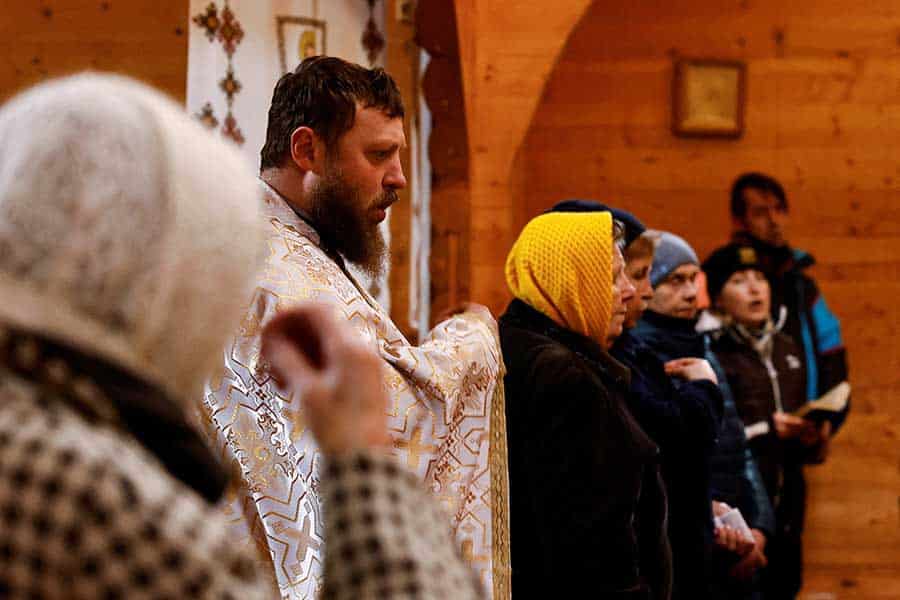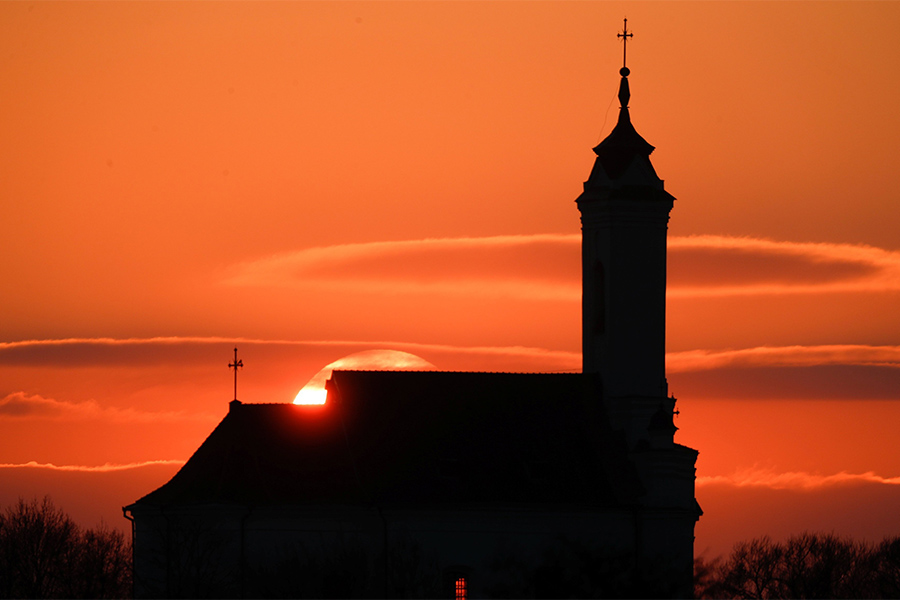OSV News recently spoke with researcher Felix Corley of Forum 18 – a news service that partners with the Norwegian Helsinki Committee to defend freedom of religion, thought and conscience – about religious freedom in Russia, Belarus, occupied Ukraine and other countries in the region.
This interview has been edited for length and clarity.
OSV News: Generally speaking, how would you describe the state of religious freedom in the areas you focus on?
Corley: Basically, the message seems to be that the situation is getting worse in most of the countries we cover. It was already very tight in most Central Asian countries, notably in Turkmenistan, but also in Azerbaijan and Belarus.
And it’s getting stricter and stricter in Russia with new laws against… well, everything, actually, some of them targeting people who exercise freedom of religion or belief. Some of them target it more broadly, but somehow take religious communities and individuals within the ambit of the law.
Obviously, Russia is imposing these laws in the regions of Ukraine that it illegally occupies. There is also in occupied Ukraine an extremely unstable situation and a kind of lawless atmosphere, such that, like in war zones or in unstable regions, basically anything can happen.
OSV News: What are some particular areas of concern that you and your team are monitoring?
Corley: Clearly, the most pressing area of concern is in Kyrgyzstan, where many communities are very concerned about a law (which was) to be considered again by its parliament (the Jogorku Kenesh) on December 26. that the rest of the international community would not be watching them on December 26, because people in many countries were off for Christmas. This is the second reading of a law that would seriously tighten restrictions and make illegal religious communities that cannot bring together 500 adult citizens. During the drafting process, and since it has been in Parliament, many communities have expressed concerns (about this law).
Catholics were particularly concerned about the number of people needed to form a religious community. They voiced their objections during the project phase. And they also worry that re-registration will be required every 10 years.
In Russia, the laws still apply to everyone. A law is being passed in the Federal Assembly (Russia’s parliament) that would ban religious meetings in private homes. We do not know, at the moment, what support the government has and whether this will actually succeed. …But there are already many restrictions imposed on religious communities in Russia.
In Belarus, most religious communities have been intimidated by authorities’ controls. The new law took effect in early 2024. Catholics have faced a very difficult time as the second largest religious community in the country. They recently saw some of their priests having to leave. They are in the middle of the re-registration process. And many communities, not just Catholics, but all religious communities except the Moscow Patriarchate, fear that if they create unrest or do anything that might upset the regime, their re-registration could be threatened.
So people were very careful before saying anything. But the mandatory re-registration runs until July, and any community that has not obtained or filed an application for re-registration by then will be liquidated by the courts, which would mean the community could no longer operate. Anything he did would be illegal.
So we saw both practical measures against religious communities in 2024, across the region, but also legal measures, which sometimes directly targeted freedom of religion or belief, sometimes in a broader context, but which affected the exercise of freedom of religion or belief. .
OSV News: Are there common causes behind such restrictions in these countries? Or are there multiple causes specific to each of these countries, with each type of case being different?
Corley: Well, the reason is that these diets don’t like activities that they don’t control. These are therefore authoritarian instincts. They don’t like people gathering anywhere. So they don’t like free unions, free political parties, free media, free religious communities. They really want communities to be ones they can control.
This is why they have elaborate and heavy recording systems. And there are always laws that allow them to find anything at any time that they can prey on people with.
OSV News: Then why do these countries enforce such laws, rather than outright banning religions?
Corley: It is possible that this practice derives from the Soviet system, which was rather legalistic. The laws existed, but they were a tool of the state against the people, which the state used according to its needs. There is no objective standard of law, no objective rule of law. And this tradition continued. On the surface, there is a veneer of legality. But the laws are always there when regimes feel threatened, nervous, uncertain or simply want to repress.

OSV News: What do you think about the Western and even global awareness of religious freedom in Russia, Belarus and other countries you monitor?
Corley: Anyone who wants to know what is happening to religious communities and individuals in these countries can do so. There is sufficient information available internationally about what is happening and faith communities and individuals in the region are speaking out when it is safe to do so.
We talk to people in countries all the time, so it’s not impossible to know if you’re really interested in what religious communities think and feel and what they experience in terms of violations of their freedom rights of religion. or a belief. People can follow our website, forum18.org, as well as reliable news sources and information from religious communities.
Obviously, we and anyone else (investigating) need to be very careful in how we publish information, making sure we don’t cause people more trouble than they already are with the regimes that rule them. Religious communities that have members in different countries in the region need to balance their interests by asking themselves: “If we say something about this situation, will it make life more difficult for our community in this country?” These are very difficult judgments that they have to make.
Obviously, people tend to be more sympathetic or concerned about people of their own faith. But it is also important for people to care about freedom of religion or belief for everyone, because everyone, regardless of their faith, suffers when there are restrictions, because you never know where the restrictions will land . While it is unacceptable for members of your community to be harassed or have their rights violated, it is also unacceptable for members of other faiths.
Everyone may or may not agree with their religious positions, opinions, doctrines and beliefs, but they have the right, provided they do not violate the rights of others, to have, express and to exercise these beliefs.
OSV News: In addition to staying informed, what practical steps can believers and people of good will take to combat the restriction of religious freedom?
Corley: Share this information, make it public, express your concerns to their own governments and ask them to raise these issues with the country where a particular violation is taking place. Ask them to raise these issues in intergovernmental organizations of which your country is a member, such as OSCE (Organization for Security and Co-operation in Europe), United Nations, Council of Europe. There are ways to raise your concerns with local politicians in other countries and other members of your religious community or human rights group or other organization you are a part of.
Read more Religious freedom
![]() Print
Print
catholicreview


